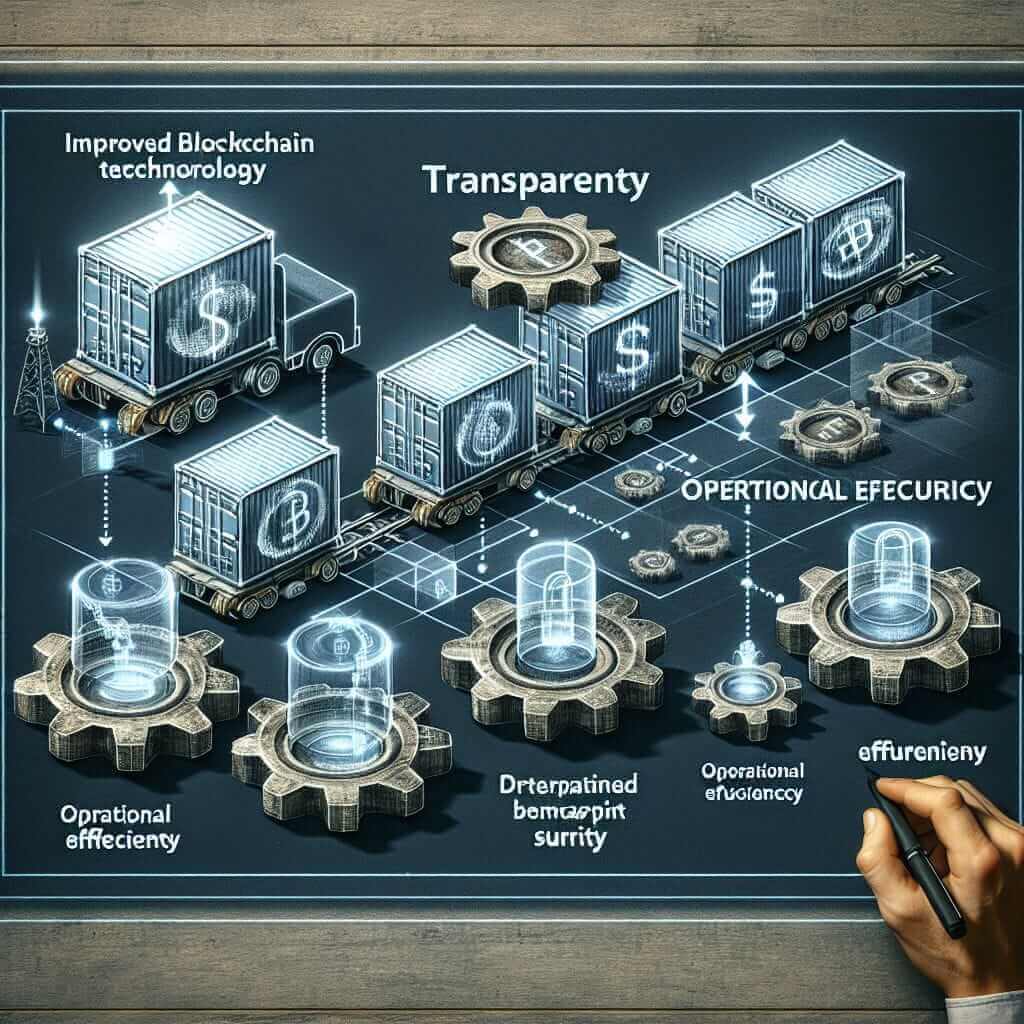The IELTS Reading test is a critical part of the IELTS exam, consisting of three reading passages of increasing difficulty. It assesses your ability to understand and interpret texts drawn from books, journals, magazines, and newspapers. The topic of “How is blockchain technology transforming supply chain management?” is increasingly relevant given the rapid advancements in both blockchain technology and supply chain logistics. This relevance means it’s a potential topic for future exams, especially considering its frequency and prominence in recent times.
Nội dung bài viết
- Practice Reading Passage: Blockchain and Supply Chain Management (Medium Text)
- Blockchain: Revolutionizing Supply Chain Management
- Questions
- Multiple Choice
- True/False/Not Given
- Matching Information
- Short-answer Questions
- Answer Key and Explanations
- Multiple Choice
- True/False/Not Given
- Matching Information
- Short-answer Questions
- Common Mistakes
- Vocabulary
- Grammar Points
- Tips for High Reading Scores in IELTS
Let’s delve into a comprehensive IELTS practice reading passage on this topic, followed by various question types to challenge and refine your reading skills.
Practice Reading Passage: Blockchain and Supply Chain Management (Medium Text)
Blockchain: Revolutionizing Supply Chain Management
Blockchain technology, initially conceptualized for digital currencies, has transcended its origins to revolutionize various sectors, notably supply chain management. By ensuring enhanced transparency, security, and efficiency, blockchain is set to redefine how businesses manage their supply chains.
Enhanced Transparency
Blockchain’s decentralized and immutable ledger provides an unparalleled level of transparency. Each stakeholder in the supply chain network can access real-time data about the movement and status of goods. This access ensures that information cannot be altered retroactively, reducing the risk of fraud and errors. For instance, a retailer can verify the origin and journey of a product from the manufacturer to their store, leading to improved trust among consumers.
Increased Security
Security is a paramount concern in supply chain management, where data breaches can have significant repercussions. Blockchain technology addresses this issue by encrypting data and controlling access through consensus mechanisms. Only authorized participants can validate transactions, ensuring data integrity and safeguarding intellectual property.
Operational Efficiency
Traditional supply chains often suffer from inefficiencies due to a lack of standardized protocols and communication issues among various stakeholders. Blockchain integrates smart contracts—self-executing contracts with the terms of the agreement directly written into code. These contracts automate processes, reduce the need for intermediaries, and expedite transactions. For example, a shipment’s delivery confirmation on the blockchain could automatically trigger an invoice, streamlining financial operations.
Questions
Multiple Choice
-
What is the primary benefit of blockchain in supply chain transparency?
- A. Reduced costs
- B. Real-time data access
- C. Increased product variety
- D. Faster shipping
-
How does blockchain increase security in supply chains?
- A. By lowering transaction costs
- B. Through consensus mechanisms
- C. By providing better customer service
- D. Through manual verification
True/False/Not Given
-
Blockchain allows stakeholders to alter historical data retroactively.
True / False / Not Given -
Blockchain’s smart contracts require manual intervention for execution.
True / False / Not Given
Matching Information
-
Match the feature of blockchain to its benefit:
- Enhanced Transparency
- Increased Security
- Operational Efficiency
A. Encryption and access control
B. Real-time data sharing
C. Automation of processes
Short-answer Questions
- What tool does blockchain use to automate processes in supply chain management?
Answer:
Answer Key and Explanations
Multiple Choice
-
B. Real-time data access
- Explanation: Blockchain allows each stakeholder in the supply chain to access real-time data about the movement and status of goods, enhancing transparency.
-
B. Through consensus mechanisms
- Explanation: Security is ensured through encryption and consensus mechanisms, which control access and validate transactions.
True/False/Not Given
-
False
- Explanation: Blockchain ensures that information cannot be altered retroactively, thus reducing the risk of fraud.
-
False
- Explanation: Smart contracts on blockchain are self-executing and do not require manual intervention.
Matching Information
-
- Enhanced Transparency: B. Real-time data sharing
- Increased Security: A. Encryption and access control
- Operational Efficiency: C. Automation of processes
Short-answer Questions
- Smart contracts
- Explanation: Blockchain integrates smart contracts to automate processes, thereby increasing operational efficiency.

Common Mistakes
- Overlooking Keywords: During the exam, students often overlook keywords in the question and passage, leading to incorrect answers. Always highlight or underline key terms.
- Misunderstanding the Passage: It’s crucial to grasp the main idea of each paragraph. Summarize each section in your own words if necessary.
- Rushing Through Questions: Allocate your time wisely. Thoroughly read the passage before attempting the questions to ensure better comprehension.
Vocabulary
- Decentralized (adj.): /ˌdiːˈsɛntrəlaɪzd/ – the transfer of authority from central to local government or to a smaller unit.
- Immutable (adj.): /ɪˈmjuːtəbl̩/ – unchanging over time or unable to be changed.
- Consensus (n.): /kənˈsɛnsəs/ – general agreement among a group of people.
Grammar Points
-
Passive Voice: “Blockchain technology addresses this issue by encrypting data and controlling access through consensus mechanisms.”
- Structure: be + past participle. This highlights the action and the recipient rather than who performs the action.
-
Relative Clauses: “Traditional supply chains, which often suffer from inefficiencies, benefit significantly from blockchain.”
- Structure: “which” is used to add extra information about the subject, without starting a new sentence.
Tips for High Reading Scores in IELTS
- Practice Regularly: Consistent practice with various passages will improve comprehension and speed.
- Enhance Vocabulary: Build a strong vocabulary base, focusing on academic and technical terms.
- Develop Skimming and Scanning Skills: Quickly identify main ideas and specific information.
- Understand Different Question Types: Familiarize yourself with all question types and their strategies.
By staying focused, practicing regularly, and continuously expanding your vocabulary, you can significantly improve your IELTS Reading scores. Good luck!